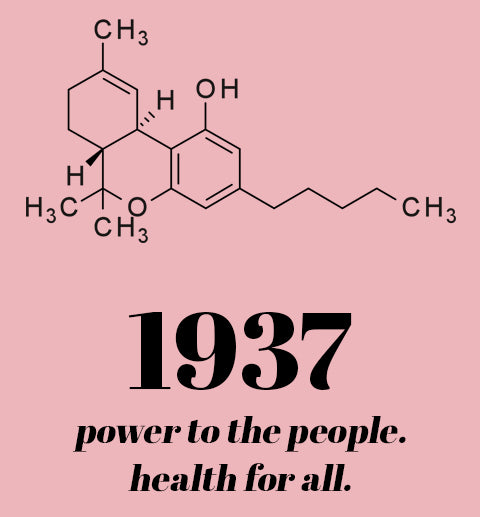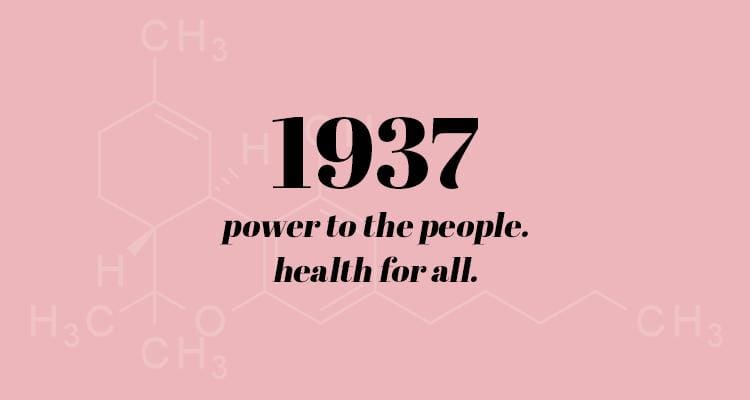PTSD and CBD: What We Know About the Bliss Molecule

The term Post Traumatic Stress Disorder (PTSD) brings to mind destruction. This disorder has done so much hurt worldwide; think aerial photos of tornado aftermath. Wars bring home broken men and women, and childhood abuse continues to haunt long after it’s over.
Traumatic events like rape, sexual abuse, car accidents, or witnessing violence take center stage in the victim’s life, leaving little room for anything else. Statistics from The National Center for Biotechnology Information (NCBI) show that at least 10 percent of people will suffer from PTSD in their lifetime.
PTSD damages relationships. It can come suddenly, exploding into consciousness with little warning, leaving behind a path of shattered experiences. It can also cause secondary trauma for loved ones, decreasing their quality of life.
Pain and PTSD go hand-in-hand. For decades, PTSD survivors and their loved ones have been searching for answers. Anything that will help. Therapy sessions and lifestyle choices only go so far—I should know; I’ve seen it first hand.
Often, pharmaceutical drugs are prescribed in a desperate act to help people keep their heads above water. But it’s not that simple.

Drugs like Zoloft and Prozac are commonly used to treat PTSD, and they often have damaging side effects. Trading one set of symptoms for another is no solution. Victims bandy between feeling like PTSD controls their life or that the drugs chain them to depression. For example, symptoms of Zoloft include:
- Fatigue
- Nausea
- Diarrhea
- Insomnia
- Headaches
- Suicidal Feelings
- Sexual Performance Issues
The traditional approach toward prescription drugs seems risky. These drugs mirror what looks like a mixed bag of original PTSD symptoms. So far, what we’ve been doing to help PTSD victims isn’t enough.
But these pharmaceutical treatments are no longer the only option for war veterans and survivors of trauma.
There are other answers out there. Some find solace in lifestyle choices like where they live and what they put in their bodies. Others practice rigid regimens of yoga and cold showers to manage their PTSD symptoms.
And still, there aren’t enough alternative routes for everyone to find peace. That’s where Cannabinol (CBD) comes in.

What is CBD?
The world of Cannabis overwhelms newcomers. Hemp, marijuana, CBD, THC, cannabinoids—what’s the difference?
The recent legal microscope has brought Cannabis to the forefront in America. Buzz words, formal terms, and nicknames are constantly thrown around.
Hemp and marijuana are two ‘children’ from the Cannabis Sativa plant. In the Cannabis family, marijuana and hemp both contain CBD. Technically, hemp-derived CBD has minuscule levels of THC but not enough to be psychoactive. Marijuana, however, contains higher levels of tetra-hydro-cannabinoids (THC), which are psychoactive.
Cannabinoid Receptors: Your Body’s Bliss Station
Due to their popularity, we’ve all heard of CBD gummies and edibles. Vaping is another option for consumption, along with topical products you rub into your skin.
In terms of release, inhalants have a more instantaneous effect than edibles. But both eventually reach your body’s cannabinoid receptors.
These receptors are responsible for the blissful sensation you feel after consuming a cannabinoid product. When the cannabinoids arrive at the receptors they extract the relaxing compounds. These little “stations” are the reason why people with PTSD and others can get a relaxing effect from CBD.
So What’s the Difference Between CBD Oil and a Prescribed Relaxant?
It’s all in the details. Although PTSD is a complex issue with varying symptoms, put simply, it is reliving a traumatic event. According to a Psychology Today article, during a PTSD episode very specific parts of the brain activate:
- Amygdala: The emotional expert that regulates emotions including fear.
- Ventromedial Prefrontal Cortex: Professor Smarty Pants in charge of higher thinking and reasoning but also well versed in regulating emotional responses.
- Hippocampus: Your Memory Guru who's Responsible for memory recall, especially regarding the spatial memory of specific places.

So how do these areas of the brain differ in a PTSD victim?
Well, let's look at an example: Picture one of your worst memories. The scary one (you know which one). Remember the flutter of fear in your chest?
You may be affected physically or emotionally when recalling such an event, but if you don’t suffer from PTSD, you can move on and forget about it.
On the other hand, someone in the middle of a PTSD attack may begin to dissociate from the present and live in the memory—it becomes their reality. They can also go into a full-on panic with heart palpitations and reactions based out of their fear of a long-gone memory. Witnessing these attacks is heart-wrenching, but the science behind them is telling.
Looking at the brain areas affected during a PTSD attack tells us invaluable information about CBD benefits.
To begin, there are two different cannabinoid receptors in our body: CB1 and CB2.
CB1 is primarily responsible for regulating stress responses and anxiety. It also helps balance appetite and the immune system.
CB2 is linked to de-inflaming body tissue.
Because CB1 is directly related to the anxiety response in the body, when someone with PTSD takes CBD oil, the results can be astonishing. Instead of ingesting a cocktail of pharmaceuticals, CBD goes directly through the body to the receptors. It can target the main symptoms of PTSD: fear, anxiety, and stress.
PTSD symptoms can be specifically targeted by the body’s cannabinoid receptors.
It’s like having a special ambulance on call for PTSD episodes. It comes fully loaded with little CBD helpers that help your brain understand that everything is okay. You’re safe.
A study conducted by NCBI found that in several human trials there was a reduction in anxiety and insomnia symptoms after CBD consumption. Both anxiety and insomnia are common symptoms associated with post-traumatic stress disorder.
Most of these patients smoked or inhaled their CBD. And a single patient took a daily dosage orally. Every single one of these patients experienced a reduction in symptoms.
Is CBD Safe?
It takes time to figure out a proper dosage, and while a healthcare provider can help answer questions about the particulars, keep in mind that the quality of CBD is just as important as the dosage.
Whether the CBD product was derived from marijuana or hemp, the FDA is not regulating these products. Where marijuana is legal, many products can contain THC at higher levels than advertised which can cause an unexpected reaction after consumption. A simple checklist can help keep you informed as to whether or not a product is safe and trustworthy. The full checklist is available here.
-
Safety in Batches: A batch number is a sign of a trustworthy company. The numbers track goods in case of a recall—just like a food product in the grocery store.
- More Than one Ingredient? Companies add all sorts of ingredients; you should always to double-check what you’re putting in your body.
- Checks and Balances: This is like the peer review of your cannabis product. When a third party (not the brand on the bottle) performs a quality check on the product, there should be a quality assurance sticker on the label. This is another way to cross-check your product.

Things Are Looking up
Suffering in symptomatic silence and taking prescribed pharmaceuticals ( or off-the-book) aren’t a victim’s only options, and being locked in a hurtful memory doesn’t have to be their only reality. Thankfully, with state legalizations changing all the time, victims have more options than ever before.
Research on the PTSD-CBD connection is ongoing. Research papers and peer-reviewed studies continue to highlighted possible benefits—things are looking up for your loved ones, and mine too. Doors are opening. And, most importantly, there’s hope.
Feel free to comment if you want to know more about the PTSD-CBD connection, or if you have a personal story to share! We’d love to hear about how CBD has affected your life.

Amy is a life-long writer. Small town living in the heart of the Rocky Mountains has provoked something deep within her soul. She loves nature hot-spots, national parks and the freedom to write off the page. When she’s not writing, you can find her racking up fines at her local library or analyzing the latest television show. Her weekly ritual includes a coffee, a word document, and the insatiable desire to tell a story. In her spare time, Amy writes articles on Medium about mental health, spirituality, and life experiences.

